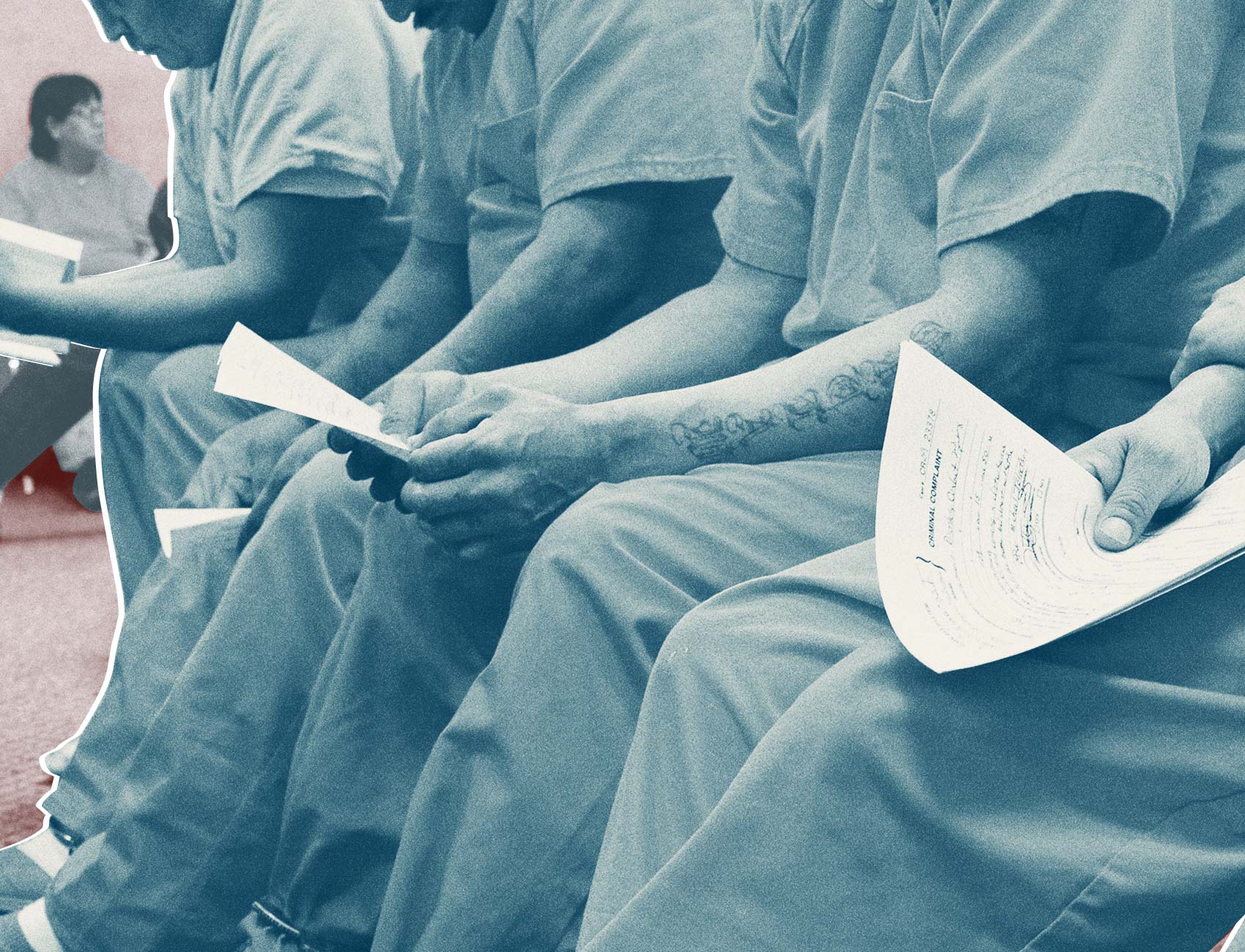Coronavirus Derails Effort To Shorten Prison Terms In Oklahoma
Organizers have been collecting signatures as part of a ballot initiative known as State Question 805, which calls for the end of sentencing enhancements for people convicted of nonviolent crimes.

An effort to shorten sentences for people convicted of nonviolent crimes in Oklahoma and give those who are already incarcerated a mechanism for release has been suspended indefinitely because of the novel coronavirus.
Since the end of December, organizers have been collecting signatures as part of a ballot initiative known as State Question 805 that would give Oklahoma voters the chance to change the state’s Constitution to end sentencing enhancements for people convicted of nonviolent crimes. To be put on the ballot, they had to collect 178,000 signatures by March 26. But this week, Secretary of State Michael Rogers suspended that deadline until the state lifts its declaration of emergency. Once it’s lifted, officials will then calculate a new date.
In a statement, Sarah Edwards, the president of Yes on 805 said: “The health and safety of our signature collectors is our number one priority. We’re confident in the status of the campaign and strength of the movement and look forward to fulfilling the will of Oklahoma voters by filling the signatures needed to put State Question 805 on the 2020 ballot.”
Last month, Kris Steele, a former state speaker of the House who is now the executive director of Oklahomans for Criminal Justice Reform, told The Appeal that organizers were well on the way to reaching their goal of 178,000 signatures. It was unclear how many signatures the campaign had collected by the time the effort was suspended.
The ballot measure would be an important step for curbing the state’s incarceration crisis—Oklahoma has the highest incarceration rate in the country, and has sent more women to prison than any other state for the last three decades, according to a report from the advocacy group Fwd.us.
This has resulted in devastating consequences for Oklahomans, Steele said. “It’s just based on this mentality in this system that is primarily founded on punishment and retribution and ultimately it’s tearing families apart.”
Currently, prosecutors can choose to seek longer sentences for people who have one or more felony convictions. Under the proposed constitutional amendment, they would be prohibited from doing that as long as the charged offense is nonviolent. And people who are already incarcerated as a result of sentencing enhancements would be able to request a hearing where a judge can modify their sentences.
Damita Price, who was sentenced to life without parole after she bought 2.2 pounds of cocaine from an undercover Oklahoma police officer, her third drug offense, has championed the reform.
“It’s cruel and unusual punishment,” Price told The Appeal of sentencing enhancements. “What are you really teaching the person when you just keep sending them back to prison? They’re not learning anything from it.”
Former Governor Mary Fallin commuted Price’s sentence in 2017, and she was freed by the parole board shortly after. She had spent 21 years incarcerated. During that time, her son, who had muscular dystrophy, died from his illness. Price had been selling drugs to pay for his medical bills.
Farah Rasheed, who was sentenced to 40 years in prison for drug possession under the state’s habitual laws, agreed that passing the amendment is vital. “Even when you’re doing your time they hold it against you for the rest of your life,” he said. “When you lock a person up and give them over a decade you’re telling that person to give up hope.”
The Oklahoma District Attorneys Council did not respond to requests for comment from The Appeal.
Stephens County District Attorney Jason Hicks, president of the DAs council, wrote an opinion piece in the Duncan Banner opposing the measure. “SQ 805 would have a significant impact on public safety in Oklahoma as it would take away one of the most important tools law enforcement has to keep someone from escalating their behavior,” he wrote.
In an interview with Woodward News, Woodward County District Attorney Chris Boring said he was “concerned” about the effect of the ballot initiative because domestic violence incidents are categorized as nonviolent, so he would not be able to add extra time to the sentences of those convicted of abuse.
The ballot initiative does have bipartisan support, however, according to Hannah Kloppenburg, a spokesperson for the campaign. She said that independent polling found that 66 percent of Oklahoma voters support the initiative, with 68 percent support among Republicans and 67 percent among Democrats.
If organizers reach their signature goal and all of the signatures are validated, Governor Kevin Stitt would then decide whether to place the measure on the ballot during the primary or general election.
